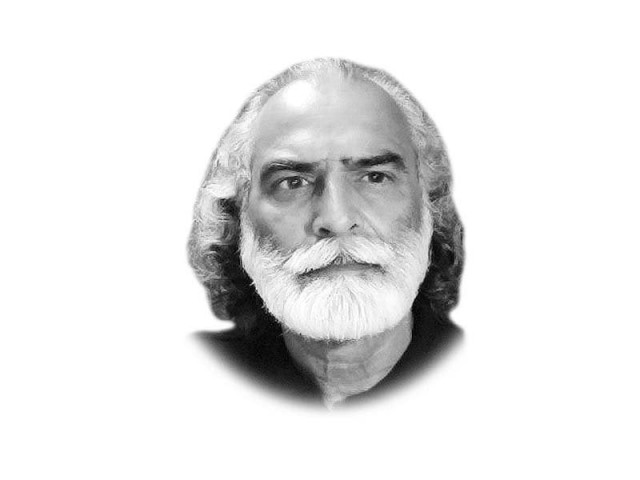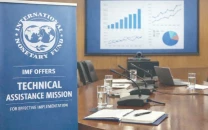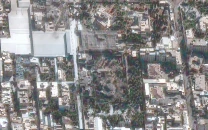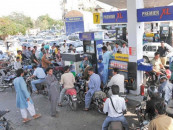Beyond level-playing-field
Evidently two largest parties are being treated differently

Since 1970, no government ousted from the Centre ever won the election that followed. Not because the electorates didn’t vote for the ousted party again. In fact, they did. And in some cases, even with higher numbers. Yet, the parties would lose seats disproportionately. For instance, in GE-1988, PPP secured 7.5 million votes, and its nearest rival, the PMLN-led IJI, got 5.9 million. The PPP’s government was not even allowed to complete two years in power. In the next election, the PPP’s vote bank in fact surged to 7.8 million, but its seats in National Assembly dropped from 93 to 44. IJI’s vote bank also increased by 2 million to 7.9 million, but its seats increased from 54 to 105. PMLN-IJI formed the next government, but faced the same fate that it had designed for the PPP only a couple of years back. Isn’t it magical that in 1993 election, PPP’s vote bank dropped to the 1988 level, but its seats increased by two-fold to 86. While PMLN maintained its vote bank of the 1990, its seats dropped by 32 to 73. Resultantly, it faced the same fate that the PPP had faced in the 1990 election.
Joseph Stalin had said “the people who cast the votes don’t decide an election, the people who count the votes do.” We have proved him right repeatedly — by using coercion, or with profound ingenuity or both. So, it can’t be a coincidence that every party that was kicked out of government could not win majority seats in the following election despite having substantial increase in its vote bank. Interestingly, each of the ousted leader accepted his/her sacking and never posed resistance against the ouster. But in April 2021, it was not to be, as the ousted Prime Minister, Imran Khan, decided to resist. And since then, the country has been mired in an unprecedented crisis, featuring political instability, economic turbulence, social chaos, etc.
And with the general election approaching, what is quite obvious is that there is no level-playing field, with the PTI suffering the most. On 20th November, PTI was not allowed to hold the workers’ convention by the district administration despite orders from the Lahore High Court. This is not an isolated case. Similar cases are being reported from other parts of the country too. Moreover, similar coercive tactics were employed during the 2018 general elections as well. At that time, the target was PMLN and PTI was the beneficiary. Today, PMLN is the beneficiary and PTI is under attack. However, PMLN was allowed to conduct electioneering, by holding public rallies and workers’ conventions.
Now, Nawaz Sharif and his family members — who were declared corrupt, sent behind the bars, saw their properties confiscated and ‘forced’ to flee from the country just five years ago — are being treated as ladla i.e. favorite. They have been judged innocent. Above all, Nawaz is getting VVIP privileges since his return from self-exile in London, though he is still an absconder and convict.
Moreover, evidently the two largest parties are being treated differently. For one the field is being completely leveled and for the other the path leading up to the polling has been littered by sharp spikes and huge holes.
Before, moving forward, let’s consider the definition of level-playing field — ‘a situation in which everyone has the same advantage and disadvantage’. Is it something alien to our culture? Of course not. Exceptions aside, in every field of life — whether it is a family or beyond, a marketplace or a playground, a labour union meeting or a national assembly session, or whether it is a process of selection of candidates — rules and ethics determine conduct and behaviour of all actors. Elections can’t be an exception at all. Rather elections are supposed to be the most regulated and rule-based exercise. Every minor step of electoral processes must be taken, considering some law and rule. No wonder, under Article 218(3) of the Constitution, the ECP is mandated to “organise and conduct the elections and to make such arrangements as are necessary to ensure that the election is conducted honestly, justly, fairly and in accordance with the law, and that corrupt practices are guarded against.”
Let’s test the preparatory phase of election. As I mentioned in my last article, there were about 5-6 million ghost voters on the electoral rolls of July 2023, while more than 13 million eligible persons were missing. It will be interesting to examine the differential impact of both phenomena on the various parties. Moreover, reading of more than 400 petitions filed against the preliminary delimitation of constituencies reveals that about 80% of petitioners expressed fear of gerrymandering. The scanning of the petitions also reveals widespread complaints about violation of all the fundamental principles of delimitation law (Section 20 of the Elections Act, 2017) such as compactness, homogeneity, 10% plus-minus variation in populations, and convenience in communication, etc. If the delimitation is not corrected according to the legally defined principles, most likely it will discourage voters from polling. Hence, lower turnout. Gerrymandering has very often been used to benefit certain parties. Keeping in view the prevailing political environment, the complaints of gerrymandering therefore shouldn’t be outright rejected.
Therefore, it could be concluded that skewed playing field is being created in order to maintain the decades-old practice of ‘not allowing the ousted party to win two consecutive elections in the Centre’ and if someone decides to resist, he deserves punishment as well as uneven playing field.
Published in The Express Tribune, December 27th, 2023.
Like Opinion & Editorial on Facebook, follow @ETOpEd on Twitter to receive all updates on all our daily pieces.















COMMENTS
Comments are moderated and generally will be posted if they are on-topic and not abusive.
For more information, please see our Comments FAQ